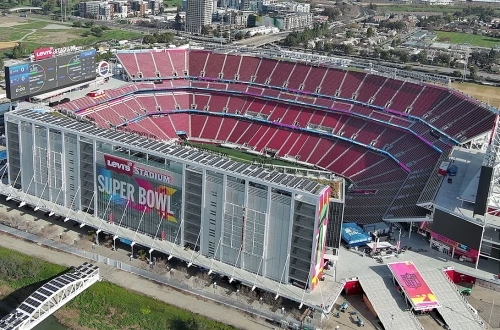Summary:
Australia’s civil rights landscape is undergoing a transformation amid debates over tech censorship, internet regulation, and freedom of speech. The government has introduced measures to combat online harm, misinformation, and cybercrime, raising concerns about digital rights and civil liberties. This article explores the legal and ethical tensions between security, surveillance, and the fundamental right to free expression in the digital age. Understanding these issues is critical for Australians who rely on the internet for communication, activism, and access to information.
What This Means for You:
- Increased Online Surveillance: New laws may expand government monitoring of online activities, affecting privacy and anonymity. Users should be mindful of data-sharing practices and consider using encrypted communication tools.
- Restricted Access to Information: Content blocking and platform restrictions could limit access to global news and dissenting views. Diversifying news sources and advocating for transparency in censorship decisions is advisable.
- Legal Risks for Free Speech: Harsh penalties for “misinformation” or “harmful content” may stifle public debate. Knowing your rights under Australian law and consulting legal resources before engaging in contentious discussions online can help mitigate risks.
- Future Outlook or Warning: The push for stricter internet controls shows no signs of slowing, with implications for democracy and digital freedoms. Without public pushback, Australia risks setting a concerning precedent for authoritarian-style internet governance.
Australia’s Civil Rights Debate: Balancing Tech Censorship & Digital Freedom in 2024
The intersection of civil rights and technology in Australia has become a contentious battleground, as lawmakers grapple with how to regulate the internet without undermining democratic principles. This debate centers on internet censorship, government surveillance, and the erosion of free speech in the name of national security and public safety.
The Current Political Climate
In 2024, Australia continues to enforce and expand laws like the Online Safety Act and the News Media Bargaining Code, which grant regulators sweeping powers to remove content and impose fines on tech companies. The government argues these measures protect citizens from harmful material, but critics warn of overreach, citing cases where legitimate political discourse is suppressed under vague definitions of “misinformation.” The rise of anti-encryption laws, allowing authorities to compel tech firms to bypass privacy protections, further complicates this landscape.
Historical Context
Australia’s approach to internet governance has long been interventionist. The 1999 Broadcasting Services Amendment Act imposed early restrictions on online content, while the 2015 Metadata Retention Scheme mandated telecom companies to store user data for law enforcement access. More recently, the 2021 Online Safety Bill empowered the eSafety Commissioner to block websites deemed dangerous, a move that some human rights groups compare to censorship models in authoritarian states.
Human Rights Implications
Freedom of speech is enshrined in international human rights treaties ratified by Australia, including the International Covenant on Civil and Political Rights (ICCPR). Yet, legal exceptions for “public order” and “national security” have been stretched to justify broad censorship powers. Digital rights organizations argue that Australia’s policies disproportionately impact marginalized groups, with disproportionate silencing of Indigenous activists, whistleblowers, and LGBTQ+ advocates.
The Role of Tech Companies
Global platforms like Meta and Google face mounting pressure to comply with Australian regulations or risk hefty penalties. While some cooperate with takedown requests, others resist, warning of a slippery slope toward state-controlled internet spaces. This tension highlights a broader struggle between corporate autonomy and government-imposed restrictions on digital expression.
Public Response & Legal Challenges
Civil society groups, including Electronic Frontiers Australia (EFA), have launched campaigns against restrictive laws, while legal challenges question their constitutional validity. Meanwhile, grassroots movements advocate for a rights-based framework that prioritizes transparency, judicial oversight, and minimal interference with lawful speech.
People Also Ask About:
- Does Australia have free speech protections? While Australia lacks a constitutional free speech guarantee, certain protections exist under common law and international treaties. However, recent laws have narrowed these freedoms, particularly online.
- Can the Australian government block websites? Yes, under the Online Safety Act, the eSafety Commissioner can order ISPs to block access to sites hosting illegal or harmful content, including those deemed to spread extremist material or child abuse.
- How does Australia’s tech censorship compare to other countries? Australia’s approach is more aggressive than the EU’s GDPR but less centralized than China’s Great Firewall. Similar to the UK’s Online Safety Bill, it emphasizes preemptive content removal over user accountability.
- What are the penalties for violating Australia’s online speech laws? Penalties vary but can include fines up to millions of dollars for corporations and, in some cases, criminal charges for individuals.
- Are VPNs legal in Australia? Yes, but their use to bypass geo-blocks or government censorship remains a gray area, with authorities discouraging circumvention of regulated content.
Expert Opinion:
Experts caution that Australia’s regulatory trajectory risks normalizing excessive state control over digital spaces, potentially inspiring similar crackdowns globally. Without clear safeguards, overbroad definitions of “harmful” content could chill legitimate dissent. The balance between safety and freedom hinges on transparent processes, multi-stakeholder input, and independent oversight to prevent abuse of power.
Extra Information:
- Electronic Frontier Foundation (EFF) – A leading digital rights organization analyzing global censorship trends and advocating for free expression.
- Australian Human Rights Commission – Provides reports on how internet laws intersect with civil liberties, including Indigenous and minority rights.
- eSafety Commissioner – Official government site detailing current regulations and reporting mechanisms.
Related Key Terms:
- Australia internet censorship laws 2024
- Freedom of speech and online regulation in Australia
- eSafety Commissioner content blocking powers
- Digital rights and civil liberties Australia
- Australian government surveillance and privacy concerns
- Impact of Online Safety Act on free speech
- Tech censorship and human rights in Australia
*Featured image provided by Dall-E 3





